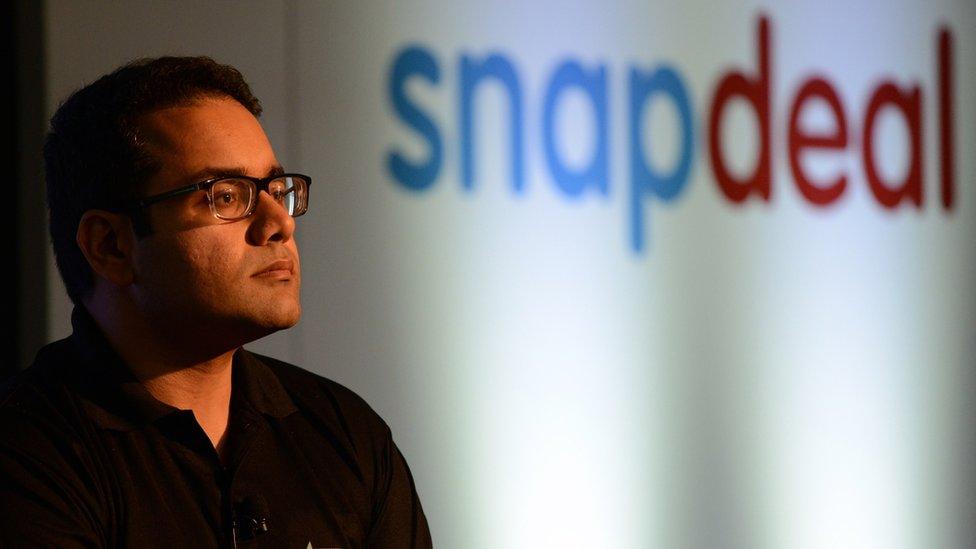Flipkart-Snapdeal mega-deal collapses
- Published

A deal between India's two biggest e-commerce businesses has collapsed.
Market leader Flipkart offered $850m (£648m) for rival Snapdeal earlier this month, and the sale had been expected to go through.
But Snapdeal said it had now decided to pursue "an independent path" and was ending talks.
With Amazon aggressively getting into the Indian market, it was widely thought only one of the two big local players would survive.
While discussions had been going on for months, it is thought Snapdeal's co-founders, Kunal Bahl and Rohit Bansal, had been opposed to the idea of selling out to their arch-rival.
Softbank, one of Snapdeal's main investors, said it respected the decision, saying that "supporting entrepreneurs and their vision and aspirations" was at the heart of its investment philosophy.

Analysis: Sameer Hashmi, India business reporter, Mumbai
This was tipped to be a blockbuster deal, had it gone through.
Apart from the founders, who were against the deal right from the start, the Snapdeal board was hesitant to accept some of the terms and conditions put forward by Flipkart.
And then last week, Snapdeal sold its mobile payments business for $60m, which gave it financial ammunition to bat off the sale for now.
The company now plans to curtail operations and restructure its business to stay afloat. But it still faces a huge task going ahead.
Even though India is one of the fastest growing markets for e-commerce, online retailers have been struggling to make profits.
Due to tough competition, e-commerce firms have been offering massive discounts to attract customers - making it difficult for them to make money.
Amazon, too, has been using its deep pockets to pursue an aggressive strategy in India, which is piling more pressure on Indian firms.
And that's why many analysts believe that Flipkart and Snapdeal will have to come together at some stage to take on Amazon in this market.

India is the among the world's fastest growing e-commerce markets, driven by the rise of affordable smartphones as well as the sheer volume of people getting internet access.
According to a report by Kleiner Perkins Caufield Byers, the number of internet users in India has climbed by 40% over the past year to about 355 million.
The same report suggested Amazon India would become the dominant firm in the market because of its investment in the country.